Moirai (The Fates): Greek Incarnations Of Destiny And Personification Of A Single, Unavoidable Fate
Angela Sutherland - AncientPages.com - The first forms of religion appeared in prehistory because humans understood that there are many natural phenomena, such as floods, drought, thunder, and lightning, that no one could stop or control.
 Strudwick, A Golden Thread. (1885). Source
Strudwick, A Golden Thread. (1885). Source
It was believed that everything beyond human capabilities controlled it due to the existence of a "higher power." Thus, the first forms of "gods" emerged in the human mind.
People worshiped impersonal supernatural forces, deprived of personality and even names, or even dead objects believed to have magical power. At one point, deities were worshiped under the animal's figure, symbolizing different forces of nature.
Later, the deities were depicted as people with individual names, appearances, and attributes, including the power to dominate people and the world of nature.
The gods decided about the fate of people and revealed their will and ideas using signs, prophecies, oracles, and fortune-telling. However, above the all-powerful gods, there were Moirae (sometimes one or three of them).
They were the goddesses of fate, destiny, and irrevocable necessity. Ancient Romans identified them with the Parcae. In Norse mythology, the Norns were spinning fate goddesses; in Slavic beliefs, the Sudice were considered the spirits of fate and judgment.
The Moirai were in charge of the thread of life which ran through every mortal being, leading them from birth to death.
There was only one Moirai, according to Homer, who considered them as a singular powerful force. Still, the poet Hesiod, on the other hand, mentioned the Moirae were three daughters of Zeus and Themis, but in earlier tradition, they were daughters of Nyx (or Night).
 The three Moirai, or the Triumph of death, Flemish tapestry, c. 1520 (Victoria and Albert Museum, London) source
The three Moirai, or the Triumph of death, Flemish tapestry, c. 1520 (Victoria and Albert Museum, London) source
One was Klotho ("Spinner"), spinning the thread of life, Lachesis ("Guardian") was guarding it, and the third of them, Atropos ("Irreversible"), was responsible for cutting it.
Atropos is considered the most unremarkable and modest but also the most terrible. Her decisions are unchangeable; she cuts the thread of life; she decides the outcome of battles and the fate of the warriors; her choices are always irrevocable.
Moirai Personified Eternal Unchanging Order
Moirae are usually depicted as ugly and older women, often dressed in white robes. Each of them has its attributes associated with her.
Clotho (Klotho) is usually depicted with a spindle or a roll (the book of fate); Lachesis is pointing with a staff to the horoscope on the globe; and Atropos with a pair of scales, or a sun-dial, or a cutting instrument.
They determined the span of life of every mortal from birth to death. They represented the unavoidable fate with no exceptions. They personified the eternal, unchanging order of the world. Their decisions were indisputable, even by the actions of the gods, who were also subordinated to the Moirae - the personification of a single fate.
They were so powerful that even the gods feared them, as they had neither the rights nor the means to alter their decisions. It has never been possible to avoid the Moirai, who symbolize the universal law – fate.
It is said that even the great Zeus was subjected to the Moirai's power, as the Pythian priestess at Delphi once admitted. However, no classic writing explains to what extent the Fates's decisions impacted the lives of immortals.
"The question of whether or not fate or destiny is an overruling power to which the gods must bow has been earnestly discussed. Some critics believe that in the poems, fate is absolute and stands above the gods. One critic maintains that Zeus is at one time subject to Moira and that at another time, he takes her [their] place as he spins out to men their fortune. Others say that the will of Zeus and fate are the same. Still, others believe that fate and religion, in general, are used by Homer to suit his poetic needs…" (J. Duffy).
The ancient Greeks believed that man has a predetermined destiny and that the course of life events cannot be avoided. It was fate that determined the lives of the heroes and ordinary people. What has been done by the gods, foretold by the oracle, must meet a man, and he has no escape.
The Moirai were deeply respected as the guardians of the order that prevailed in the universe and earthly relations. They had their altars and temples. Human life depended on the Moirai; they were called at the child's birth, and the bride and groom offered them a sacrifice on the wedding day. Brides in Athens offered the Moirai locks of hair, and women swore by them. People knew their future and tried to change it thanks to prophecies but to no avail.
Written by – A. Sutherland - AncientPages.com Senior Staff Writer
Updated on Oct 17, 2023
Copyright © AncientPages.com All rights reserved. This material may not be published, broadcast, rewritten or redistributed in whole or part without the express written permission of AncientPages.com
Expand for referencesTanner R. Greek Mythology
Duffy J. The Classical Journal Homer's Conception of Fate
Evslin B. Heroes, Gods and Monsters of the Greek Myths
More From Ancient Pages
-
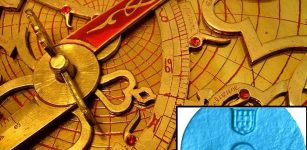 World’s Oldest Marine Navigation Tool Was A Sophisticated Astrolabe
Archaeology | Oct 25, 2017
World’s Oldest Marine Navigation Tool Was A Sophisticated Astrolabe
Archaeology | Oct 25, 2017 -
 407-Million-Year-Old Plant Fossil Challenges Long-Held Theory On Fibonacci Spirals Found In Nature
Evolution | Jun 22, 2023
407-Million-Year-Old Plant Fossil Challenges Long-Held Theory On Fibonacci Spirals Found In Nature
Evolution | Jun 22, 2023 -
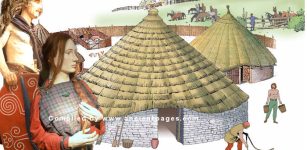 Celts: Facts And History About The Powerful And Intriguing People Of Central And Northern Europe
Civilizations | Aug 7, 2022
Celts: Facts And History About The Powerful And Intriguing People Of Central And Northern Europe
Civilizations | Aug 7, 2022 -
 Ancient History Of The Christmas Tree And Its Pagan Roots – How The ‘Forbidden’ Tree Survived Against All Odds
Ancient Traditions And Customs | Dec 11, 2020
Ancient History Of The Christmas Tree And Its Pagan Roots – How The ‘Forbidden’ Tree Survived Against All Odds
Ancient Traditions And Customs | Dec 11, 2020 -
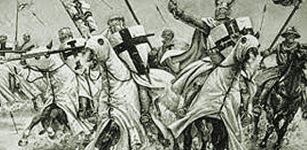 On This Day In History: Battle Of The Rhyndacus – Oct 15, 1211
News | Oct 15, 2015
On This Day In History: Battle Of The Rhyndacus – Oct 15, 1211
News | Oct 15, 2015 -
 Palnatoke – Founder Of The Jomsvikings Brotherhood, Legendary Danish Hero And Enemy Of King Harald Bluetooth
Historical Figures | Nov 2, 2016
Palnatoke – Founder Of The Jomsvikings Brotherhood, Legendary Danish Hero And Enemy Of King Harald Bluetooth
Historical Figures | Nov 2, 2016 -
 Startling Roman-Looking Sandal Discovered Buried Deep Beneath The Snow In Norwegian Mountains
Archaeology | Apr 13, 2022
Startling Roman-Looking Sandal Discovered Buried Deep Beneath The Snow In Norwegian Mountains
Archaeology | Apr 13, 2022 -
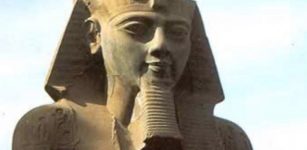 Colossus of Ramesess II At Karnak Temples Is Undergoing Restoration
Archaeology | Feb 24, 2017
Colossus of Ramesess II At Karnak Temples Is Undergoing Restoration
Archaeology | Feb 24, 2017 -
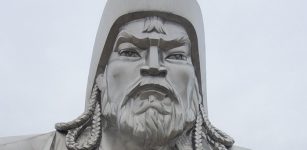 Avraga In Eastern Mongolia Was Winter Base Camp Of Genghis Khan – Study
Archaeology | Jul 8, 2020
Avraga In Eastern Mongolia Was Winter Base Camp Of Genghis Khan – Study
Archaeology | Jul 8, 2020 -
 Ruins Of 2,300-Year-Old City Of Jiaohe On The Silk Road
Civilizations | Aug 6, 2023
Ruins Of 2,300-Year-Old City Of Jiaohe On The Silk Road
Civilizations | Aug 6, 2023 -
 Forseti: Norse God Of Justice And Lawmaker Who Lived In A Shining House
Featured Stories | May 1, 2016
Forseti: Norse God Of Justice And Lawmaker Who Lived In A Shining House
Featured Stories | May 1, 2016 -
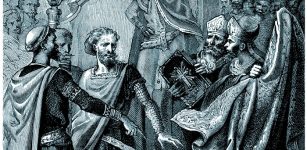 William The Conqueror: Ruthless And Powerful Ruler Who Changed Britain Forever
Featured Stories | Feb 25, 2023
William The Conqueror: Ruthless And Powerful Ruler Who Changed Britain Forever
Featured Stories | Feb 25, 2023 -
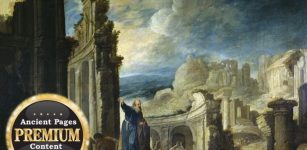 Ezekiel’s Secret Ancient Knowledge About Lost Worlds – Thought-Provoking Theory Examined
Featured Stories | May 3, 2019
Ezekiel’s Secret Ancient Knowledge About Lost Worlds – Thought-Provoking Theory Examined
Featured Stories | May 3, 2019 -
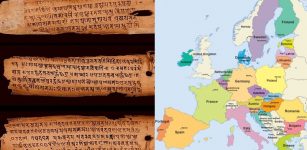 How Strong Is The Link Between Sanskrit And European Languages?
Linguistic Discoveries | Aug 5, 2020
How Strong Is The Link Between Sanskrit And European Languages?
Linguistic Discoveries | Aug 5, 2020 -
 DNA From 35,000-Year-Old Romanian Skull Reveals Flaws In The Theory Of Evolution
Archaeology | May 25, 2021
DNA From 35,000-Year-Old Romanian Skull Reveals Flaws In The Theory Of Evolution
Archaeology | May 25, 2021 -
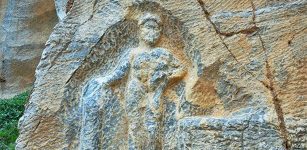 Ancient Relief Depicting Heracles With His Crook And A Seven-Headed Snake Should Be Protected
Archaeology | Dec 14, 2015
Ancient Relief Depicting Heracles With His Crook And A Seven-Headed Snake Should Be Protected
Archaeology | Dec 14, 2015 -
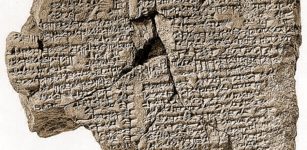 Utukku Lemnutu: Incantations Used As Therapy In Mesopotamia
Archaeology | Oct 25, 2016
Utukku Lemnutu: Incantations Used As Therapy In Mesopotamia
Archaeology | Oct 25, 2016 -
 How Early Farmers In Scandinavia Overcame Climate Change
Archaeology | Dec 19, 2023
How Early Farmers In Scandinavia Overcame Climate Change
Archaeology | Dec 19, 2023 -
 India’s Tradition Of Advanced Metallurgy, Craftsmen And Blacksmiths Is Longer Than Thought
Ancient Technology | Mar 19, 2019
India’s Tradition Of Advanced Metallurgy, Craftsmen And Blacksmiths Is Longer Than Thought
Ancient Technology | Mar 19, 2019 -
 Hidden Prophecies Inside The Great Pyramid Of Giza Discovered By Scientists
Featured Stories | Jun 21, 2017
Hidden Prophecies Inside The Great Pyramid Of Giza Discovered By Scientists
Featured Stories | Jun 21, 2017
